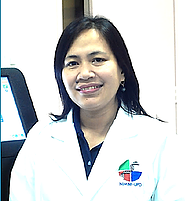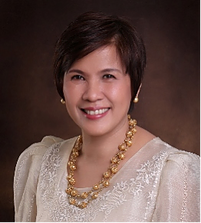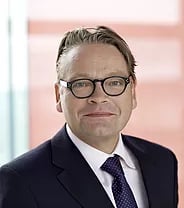DATE:
07 March 2017 | 9am – 12nn
VENUE:
NIMBB Conference Room (click here for the map)
National Science Complex, Univ Philippines Diliman
The event aims to explore collaborations between the PGC and GeoSmart (a Filipino startup biotech company) & FIZ (Frankfurt Innovation Center, Germany).
Speakers
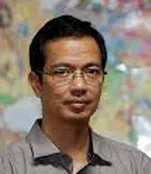
Carlos Primo C. David, PhD
Executive Director,
PCIEERD, DOST, Philippines
Program
9:00 – 9:15am Introduction to GeoSmart and Partnerships
Carlos Primo David, Ph.D., Executive Director, PCIEERD, Department of Science and Technology (DOST)
9:15 – 9:45am PGC Overview and Biomarkers Research
Ma. Anita Bautista, Ph.D., Officer-in-Charge, PGC / Director, DNA Sequencing Core Facility
9:45 – 10:15am Cancer Genetic Testing in the Philippines
Eva Maria Cutiongco-de la Paz, MD, Project Leader, Health Program, PGC
10:15 – 10:45am Fiz Concept
Christian Garbe, Ph.D., Managing Director, FIZ Frankfurt Biotechnology Innovation Center, Germany
10:45 – 11:15am OPEN FORUM
11:15 – 11:30am DNA Sequencing and Bioinformatics Facility (DS-BF) Lab Tour
11:30 – 12:00pm Discussion: PGC Scientists on Technology Transfer
Event summary by Alessandra C. Sanchez, 03/09/2017
In a mini-symposium held at the National Institute of Molecular Biology and Biotechnology (NIMBB) on March 7, 2017, it was revealed that the Philippine Genome Center (PGC), in coordination with GeoSmart, Inc. and FiZ Frankfurt Biotechnology Innovation Center, plans to offer its services for cancer genomics to clinicians. The partnerships also aim collect genomic data for the construction of a Filipino oncogenome database for cancer research and molecular profiling.
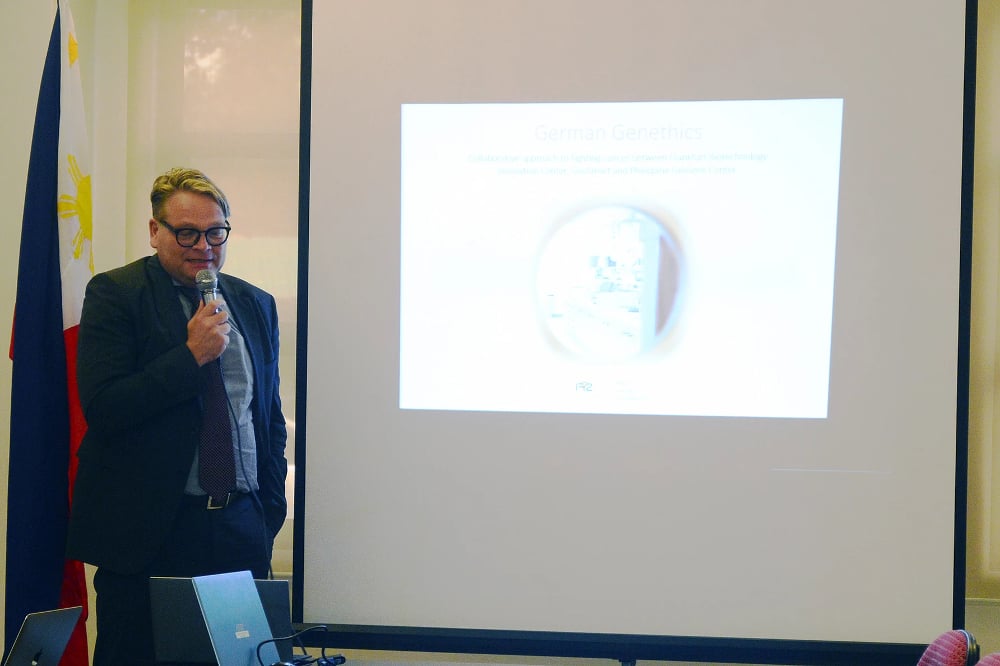
Prognosis for cancer patients is steadily improving with the advent of medical technology and early detection methods; however, determining the appropriate treatments for each individual patient pose difficulties for doctors who have to consider the location, type, and stage of the disease, as well as possible side-effects and the patient’s preferences. Often they resort to a “trial-and-error” or “one-size-fits-all” approach in determining the most effective treatment available, but for patients this method may cause unnecessary toxicity and mental and emotional distress.
One possible way to address these concerns is through personalized medicine — the use of a patient’s DNA sequence to customize treatments to each patient’s needs and preferences. Personalized cancer medicine has the potential to target cancerous cells, specifically, which prevents damage to healthy cells characteristically seen in radiation therapy and chemotherapy, thereby reducing harmful side effects.
However, in the Philippines, where cancer remains to be one of the leading causes of morbidity and mortality, genetic and genomic testing are prohibitively expensive for a large fraction of the population. Additionally, the country has no national cancer database, which can give insights into possible novel DNA mutations found in patients with Filipino ancestry.
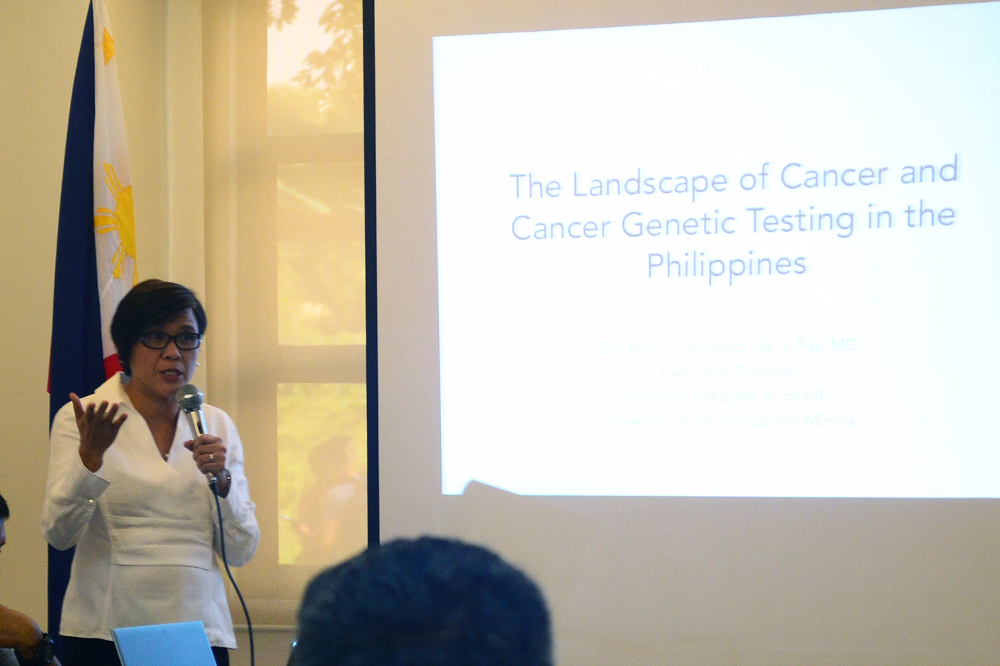
Genetic testing, according to Eva Maria Cutiongco-de la Paz, MD, Vice Chancellor for Research, and Executive Director, National Institutes of Health (NIH), University of the Philippines Manila, “gives information on the risks of getting cancer,” while genomic testing is used to determine potential treatments that may be most effective.
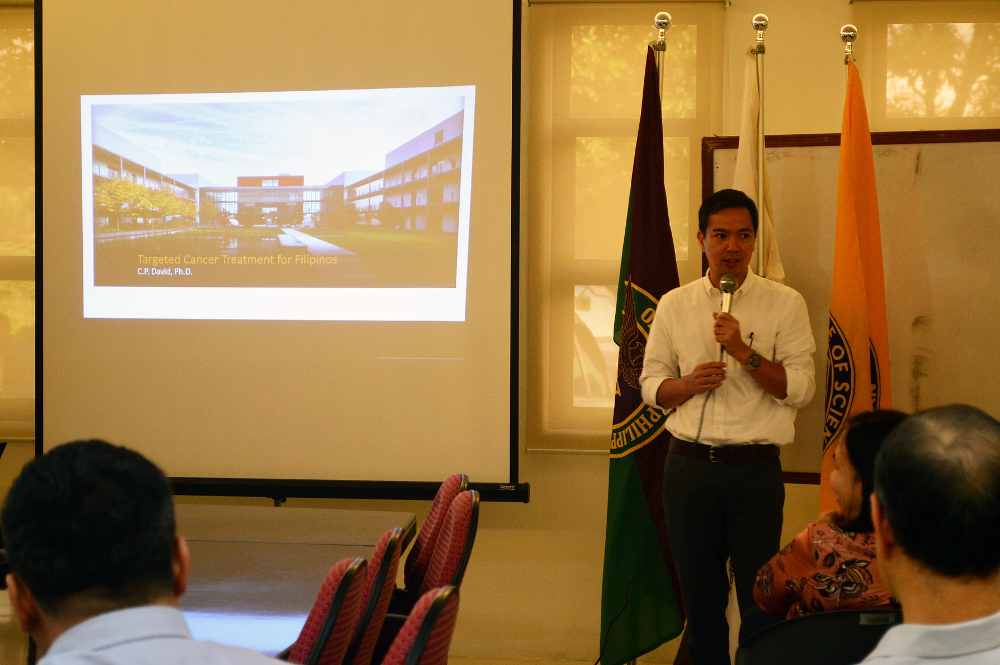
Carlos Primo C. David, PhD, Director for the Philippine Council for Industry, Energy and Emerging Technology Research and Development (PCIEERD), stated in his short lecture that not only is personalized cancer treatment important in health service, but also in its application for research and by “the fact that we’re being overtaken already by the other countries in terms of building data on cancer genetics and the appropriate treatment[s].”
The PGC’s DNA Sequencing and Bioinformatics Facility (DS-BF), headed by its director Ma. Anita Bautista, PhD, plans to offer their sequencing and bioinformatics services to clinicians at rates accessible to Filipino citizens. The sequencing data will then be processed through GeoSmart, Inc. and FiZ Biotech’s database networks in order to construct a nationwide database for cancer research, diagnosis, and treatment.
Click here to see more photos.

